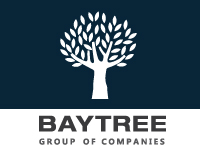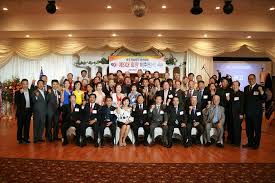CA
ON
K-포차 ...미시사가(만두향프라자)
전화: 905-824-2141
169 DUNDAS ST. E. #7 Mississauga, ON

조준상 (로열르페이지 한인부동산 대표)
전화: 416-449-7600
1993 Leslie St. Toronto, ON

한인 시니어 탁구협회
전화: 647-209-8933
1100 Petrolia Rd Toronto, ON
4.jpg)
최고의 POS시스템 - 스마트 디지탈 POS
전화: 416-909-7070
4065 CHESSWOOD DR. NORTH YORK Toronto, ON
0.jfif)
한인을 위한 KOREAN JOB BANK
전화: 6476245886
4065 Chesswood Drive Toronto, ON
.jpg)
준비된 바이어 그룹 , BAYTREE 이너써클
전화: 416-226-5999
7030 Woodbine Ave. Suite 103 Toronto, ON

럭키 여행사
전화: 416-938-8323
4699 keele st.suite 218 toronto Ontario M3J 2N8 toronto, ON

1004열쇠
전화: 416-895-1004
4 Blakeley Rd. Toronto, ON

고려 오창우 한의원
전화: 416-226-2624
77 Finch Ave W #302, North York Toronto, ON

부동산캐나다 (Korean Real Estate Post)
전화: 416-449-5552
1995 Leslie Street Toronto, ON
.jfif)
행복부동산 -수잔정 Home Standards Brickstone Real
전화: 647-866-7878
180 Steeles Ave W Unit 30, Thornhill, ON

호남향우회 (토론토)
전화: 647-981-0404
7 Bishop Ave. #2411 Toronto, ON

It would be a place where all the visitors including me share the life stories and experiences through their activities,especially on life as a immigrant.
Why don't you visit my personal blog:
www.lifemeansgo.blogspot.com
Many thanks.
블로그 ( 오늘 방문자 수: 329 전체: 267,892 )
South Korea on Edge After Ex-President’s Suicide - NY times
lakepurity
2009-05-24
South Korea on Edge After Ex-President’s Suicide
By CHOE SANG-HUN
Published: May 24, 2009
SEOUL ― Thousands of South Koreans ― some holding the hands of children, some shouting anti-government slogans, all carrying white chrysanthemums ― flocked to central Seoul on Sunday to bid farewell to former President Roh Moo-hyun, who committed suicide Saturday.
In a country where even the most prominent political leaders have faced corruption charges in recent decades, Mr. Roh, 62, was the first to end his own life while under investigation. For both his supporters and detractors, his suicide served as a painful reminder of how difficult it remained to break the chain of graft in South Korean society.
“We are sorry we failed to protect you,” read many of the numerous yellow ribbons near the ancient Deoksu Palace in Seoul, hung by people who believed Mr. Roh was the victim of political vendetta from his successor, President Lee Myung-bak. “We will remember you forever. History will know that you were the cleanest president we ever had,” others said.
Before dawn Saturday, Mr. Roh switched on his computer and typed a suicide note ― his last comment on a corruption scandal that threatened to undo his proudest legacy: his record as an upstanding political leader.
“Don’t be too sad,” Mr. Roh said in the note, meant for his wife and two children. “Life and death are all parts of nature. Don’t be sorry. Don’t blame anyone. Accept it as fate.”
An hour and a half later, as the sun rose through a cloudy sky, Mr. Roh climbed a hill overlooking his native village of Bongha, on the south coast, and jumped off a cliff.
On Sunday, South Koreans across the country lined up ― for hours under drizzling rain in some places ― to pay respect at temporary mourning altars set up in the retirement village of Bongha.
Central Seoul was thick with police officers in full riot gear, a sign that Mr. Roh, even after death, remained a volatile figure.
On Sunday, the government and Mr. Roh’s family agreed to hold a state “people’s funeral” Friday.
But tension also simmered as Mr. Roh’s suicide threatened to deepen a political divide. His supporters trampled on a funeral wreath donated by his successor, President Lee Myung-bak, and turned away his deputy, Prime Minister Han Seung-soo, who came to pay tribute at Bongha.
Past midnight Sunday, young people holding candles still stood in lines hundreds of meters long and snaking around the Deoksu Palace. People signed a petition calling on Parliament to impeach Mr. Lee for “murder.” Police buses surrounding the mourning site were plastered with paper messages denouncing Mr. Lee and prosecutors.
In his last months, Mr. Roh, who was president from 2003 to 2008, had seen his personal achievements clouded by accusations of corruption and many of his political accomplishments undone.
The corruption charges faced by Mr. Roh’s family were minor compared with those that had discredited some of his predecessors, who had collected massive sums from the nation’s top conglomerates. But prosecutors, long accused of taking orders from whomever is in power, aggressively went after Mr. Roh, leaking details of their investigation to the media. Mr. Roh killed himself a day before his wife, Kwon Yang-sook, was expected to be summoned for questioning for a second time.
“He was driven to kill himself for taking some money from a long-time supporter, while those who robbed big businesses of truckloads of cash are still alive without shame,” said Choi Chul-kyu, a 48-year-old mourner holding a candle, referring to former conservative political leaders convicted of bribery. “How am I going to explain this to my children? How am I going to explain the fact that every president in this country has wanted to squash his predecessor?”
But those who were close to Mr. Roh said the charges were especially painful because he had made his name as a “clean” politician, refusing to follow in the path of his predecessors; every former South Korean president since the 1980s has faced corruption accusations or gone to prison on such charges after his term was over.
In recent weeks, Mr. Roh acknowledged that a little-known businessman who supported him had given more than $6 million to his wife and son and his brother’s son-in-law while he was in office, but he denied the payments were bribes. He said that he did not know about the transactions until he left office and that the money for his wife went to pay a debt.
While in office, Mr. Roh survived an impeachment and even confessed to being “sick and tired of being president.” But masked by such frankness and feistiness was a sensitive leader who took criticism personally, engaged in a vicious, prolonged battle with the nation’s conservative media, and appeared to consider real-life politics, which haunted him even in retirement, too messy for his character and too much to take.
“There was not a single quiet day while he was in office,” said Choi Jin, head of the Institute of Presidential Leadership. “Throughout his life, he always made extreme choices, playing an all-or-nothing game. His suicide was the last explosion in his fiery and volcanic career.”